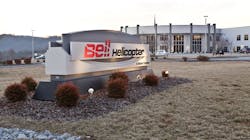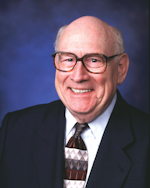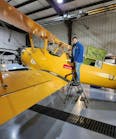As a fixed wing pilot, I’m no expert on helicopters, but I have developed a tremendous respect for the east Tennessee facility of Bell Helicopter. You didn’t realize Bell Helicopter had a facility in Tennessee? They do indeed, in Piney Flats, which you probably never heard of either.
My respect arises from several areas of the operation.
What they do
First, I have a great deal of respect for what they do.
This facility has a unique role. It doesn’t manufacture helicopters, but it does get them ready for customers. The helicopters are built in Mirabel, Canada and are then ferried to Piney Flats. Typically they are “green,” which means painted with primer, and equipped with only basic avionics.
What happens next is awesome. Each helicopter is “finished” to the exact specs of the customer. The interiors are installed, exteriors are painted, avionics and other special equipment are installed, and customers’ logos are added. The engines are preserved, because they will be unused during the customizing process. Each customization is based upon what the customer plans to do with each aircraft and how the customer wants it equipped to do that job.
A police helicopter requires one set of equipment or configuration; an emergency medical service (EMS) helicopter requires another. For example, the EMS craft may require a winch to evacuate victims. That winch swings outward from the craft on an arm, and will influence weight and balance depending on whether the arm is in or out and the weight of the victim. All of that is part of the customization.
A VIP passenger aircraft is much more straightforward but still consists of what the customer wants. Inside the facility recently I saw a VIP Bell 429 that was absolutely beautiful, with diamond-pleated leather seats and a truly gorgeous paint job. If I ever win the Power Ball lottery, I just may buy one of those!
Bell Helicopter makes a great contribution to the economy of east Tennessee and the USA. The facility employs about 500 people, and over the past couple years has delivered some 250 finished helicopters of which roughly 80 percent go to customers outside of this country. They are definitely a primary industry, bringing money back into east Tennessee.
Training never ends
I also respect the facility’s employee training.
Richard A. Blevins, training department manager, says that employees must be craftspeople, and he’s serious about that. Recently, Bell Helicopter held a special program to show media folks and area VIPs exactly what craftsmanship means. I participated and it was fascinating. Each of us was taught to prepare a wire with a connector at one end, and also taught to rivet two pieces of metal together. I still have my connector and riveted plates, and bet all the other visitors have theirs.
You can bet those VIPs left there with an expanded viewpoint about the type of people Bell Helicopter hires and trains.
Blevins and Dennis Carothers, manager of the Bell 429 Customizing Value Stream, explained to me that the facility completes a pre-hire assessment with the goal to find highly-skilled potential employees to become finished craftspeople. A new hire gets five or six weeks of initial training, then continues to train throughout his/her career. Training never stops, because aircraft/avionics improve regularly, the FAA changes regulations, and the competition never sits still.
Positive company culture
I respect the relationship between management and other employees.
On several visits to the facility, I noticed that the employees are delighted and proud to be working for Bell Helicopter. They obviously enjoyed teaching us about making the connectors and riveting the metal plates.
Watching managers interact with employees was just as pleasant. As I walked with Blevins and Carothers, they introduced the employees to me as we passed. They knew them by name, told me what they were doing and — in some cases — what they were going to be doing in the future. One, for example, was soon going to be training other people himself.
Bell Helicopter cross-trains employees for many jobs so they can move around while remaining engaged and proud of their work.
Community minded
Yet another thing I deeply respect about Bell Helicopter is their relationship with the community.
I first met Blevins when a group of community leaders began promoting the area’s Tennessee Aviation Initiative (TAI). Bell Helicopter was one of the original leaders of TAI. Blevins was on the founding committee, still is, and still works hard for the TAI.
TAI is based in large part on the building of STEM (Science, Technology, Engineering and Math) skills. TAI encourages STEM education in schools ranging from elementary through college, and — with a lot of help from Bell Helicopter — it really is happening. In fact, when a local community college adds special STEM classes next year, Bell Helicopter employees will be teaching many of those classes.
Make no mistake — TAI can change this area and Bell Helicopter is determined to make that happen.
To sum it all up: If I had kids working for Bell Helicopter, I’d be proud of them and happy for them.
Ralph Hood is an award-winning columnist (he writes for Airport Business), a salesman and sales manager (he sold airplanes, for crying out loud!), a teacher (he taught college-level aviation management) and a professional public speaker who has entertained and enlightened audiences from Hawaii to Spain, and from Fairbanks to Puerto Rico.


